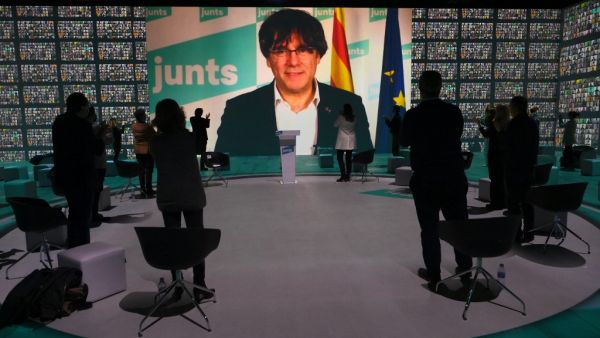Catalonia votes Sunday to elect the 135-seat regional parliament after a court ruled against the postponement of the election due to the lingering coronavirus pandemic. In Barcelona, election officials rushed to turn municipal markets, sports halls and every available public space into makeshift polling locations.
Some health experts have expressed doubt about vote as the region hit the 20,000 deaths since the start of the pandemic. Despite efforts to minimize the risk of infection, many voters remained skeptical.
Spain: Catalans to vote in test of separatist movement https://t.co/KiMynWUJGO
— The Independent (@Independent) February 14, 2021
Political parties wrapped up their campaigning Friday amid deep divisions in the pro-independence camp. Republican left party leader Oriol Junqueras who is serving a jail sentence for the 2017 referendum, was allowed to leave prison to campaign for his party's pick for president. He urged followers to vote to counter the rise the far right in the region.
His main rival in the pro-Spanish unity camp, former health minister Salvador Illa promised to put an end to the separatists' stranglehold on power in Catalonia.
Although they spent much of the campaign denigrating each other, the two main pro-independence parties Wednesday signed an agreement in which they pledged not to seek any coalition with the socialists to form a government.
Catalans reflect as Junts maintains poll lead: https://t.co/VnamsZ0shG
— Greg Russell ??????????????? #FBPI (@National_Greg) February 13, 2021
In the last stretch of what has been largely described as a precipitated election, the latest polls still show the top three parties in a dead heat. The projected abstention rate and voter indecision could dramatically shift the outcome of the vote.
This article has been adapted from its original source.








